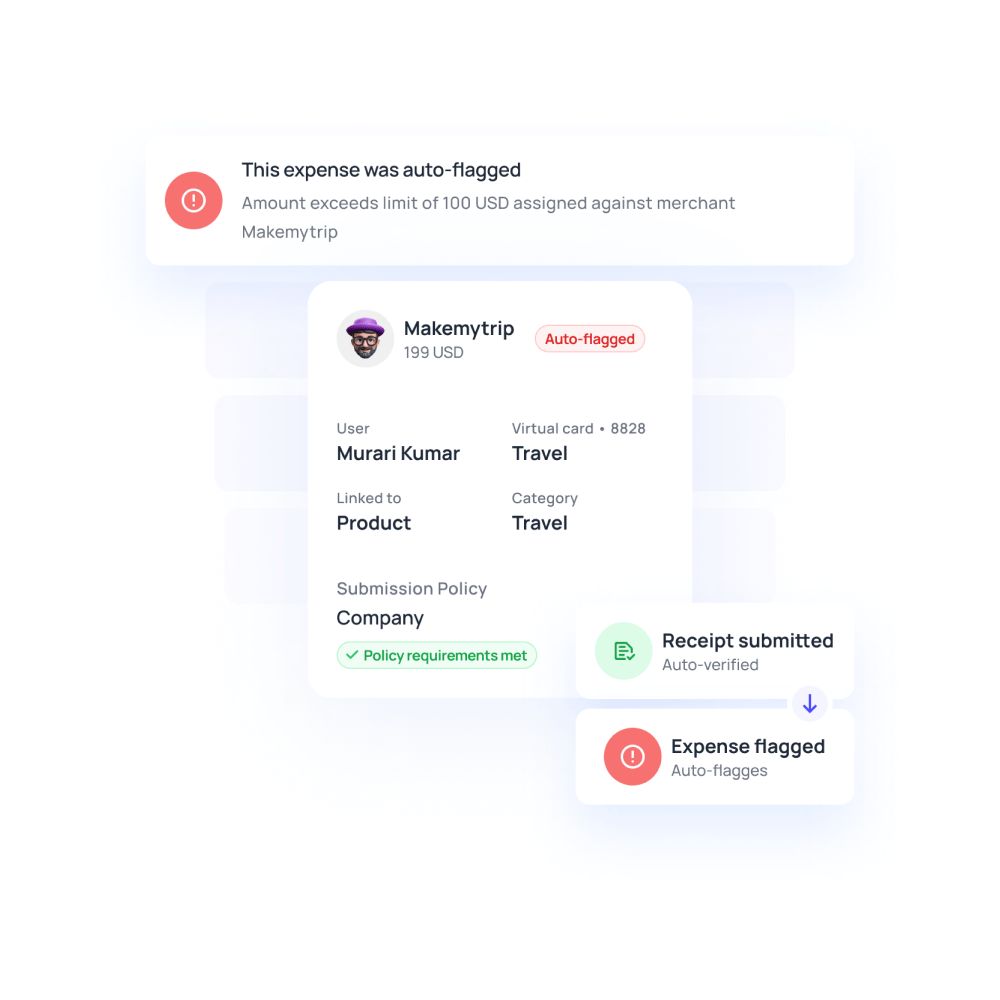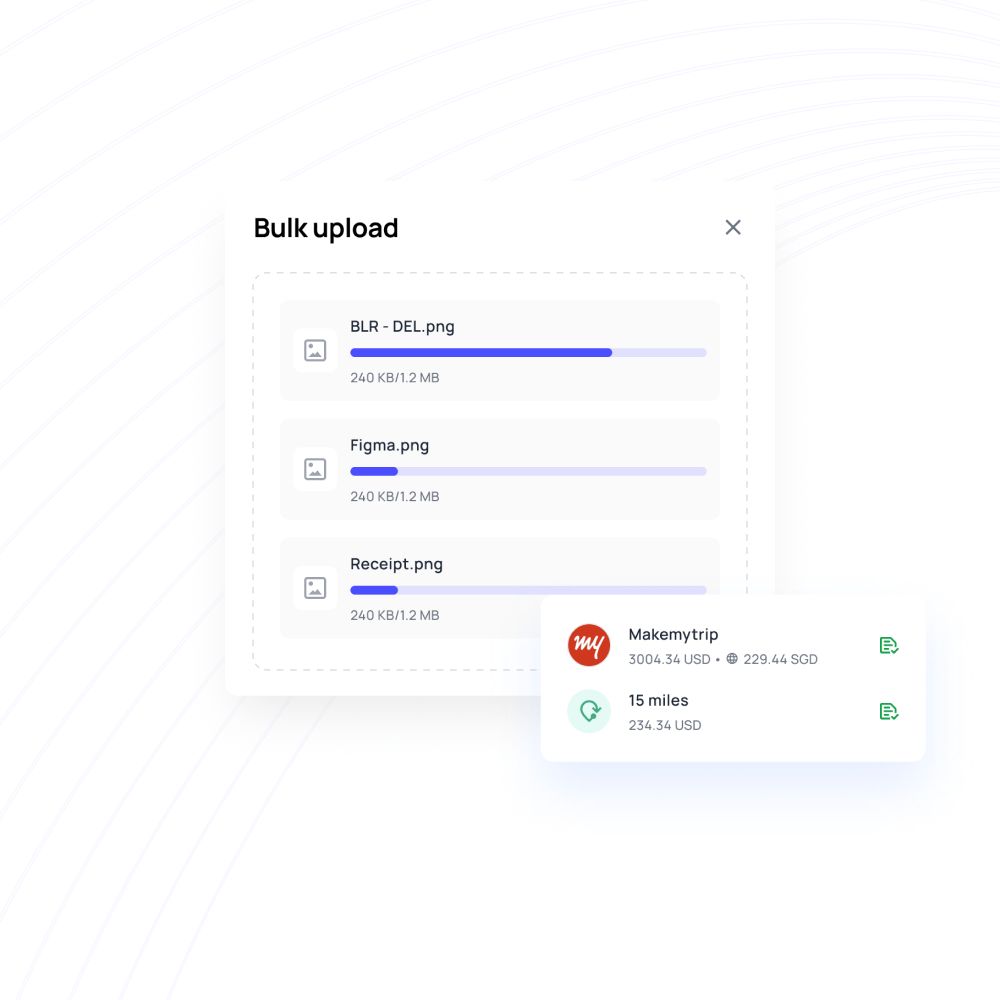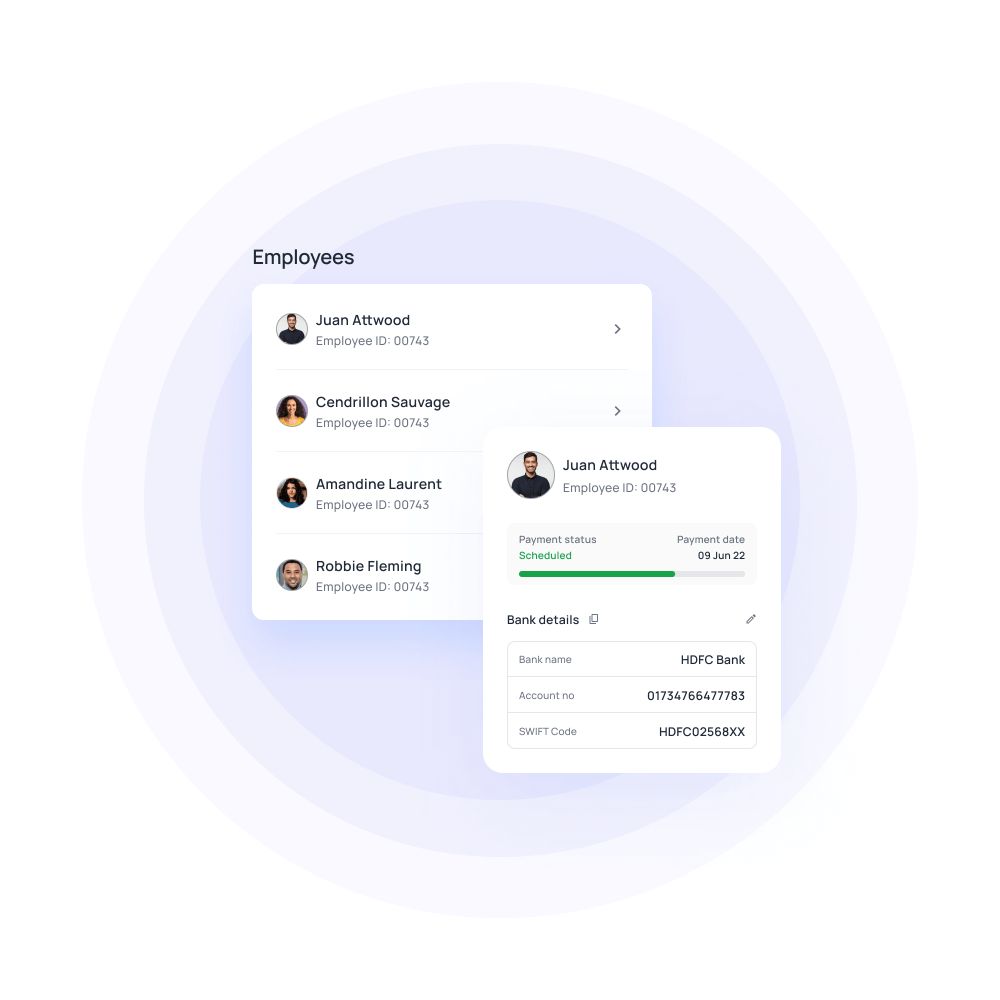Benefits of rule-based expense reimbursement policy
An expense management policy contains crystal clear information on how employees can utilize company capital, the limit on each expense, who is in charge of analyzing and approving this expenditure, and the reimbursement approval process for any out-of-pocket expense made by employees themselves. However, are all-expense policies created equal?
No, they are not. To enforce expense policy rules, a business owner has a choice to pursue either of two approaches - Language-based expense policy and rule-based expense system. Is one expense policy better than the other? To put it plainly, yes.
What are rule-based expense policies?
A rule-based expense management system eliminates all the inconvenience caused by a paper-based company expense policy. With a rule-based company expense reimbursement policy, there is minimal human supervision and absolutely zero paper-based expense management required. With a rule-based expense system, employees work with a system built upon automated approval workflows and automatic expense policy compliance configured right into it.
Instead of leafing through the big book of company expense policies, you have customized rules for compliance right into the system, so that any non-complying expense does not get processed right from the outset.

Zero paper based expense policies
A rule-based expense system eliminates all the inconvenience caused by a paper-based company expense policy. With a rule-based company expense reimbursement policy, there is minimal human supervision and absolutely zero paper-based expense management required. With a rule-based expense system, employees work with a system built upon automated approval workflows and automatic expense policy compliance configured right into it.
Instead of leafing through the big book of company expense policies, you have customized rules for compliance right into the system, so that any non-complying expense does not get processed right from the outset.

Approvals for reimbursements
With a language-based expense policy, your employees can chalk up any non-compliance to linguistic ambiguity. On the other hand, a rule-based employee expense policy leaves no room for confusion. Your expense system sets down clear expense policy rules right into its configuration, allowing your employees to be reimbursed only when certain conditions are met, namely proof of purchase (receipt) and approval action.

Benefits of rule-based expense policies for organizations
Avoid detailed reimbursement proceedings
Language-based expense policies tend to be extremely technical and detailed when it comes to reimbursement to avoid any ambiguity. These policies lay out a thorough reimbursement process, from an exhaustive list of approved and disapproved expense categories, to circumstantial modifications, level of approvals required, the designated approvers for each level, steps taken in case of employee dissatisfaction regarding reimbursement decisions, and so on. Rule-based expense policies do not need an extensive document. You can easily integrate rules into your reimbursement approval process.
Eliminates multiple expense policies
A recurring problem with language-based company expense policies is the need to write multiple formats of expense policies to address all possible scenarios an employee may come across while spending business capital. Instead of wasting your finance department’s precious time writing separate expense policies for travel and entertainment, reimbursement, and office supplies, you can simply switch to a rule-based expense management policy. An expense system with built-in expense rules eliminates the need to have these situation-specific expense policies altogether, making it far easier for your employees to make and report expenses.
Easy record-keeping for audit compliance
A rule-based expense system is every auditor’s and business owner’s dream. Why? Because it ensures that employees make expenses within the limits of the rules programmed into the system. Even better, rule-based expense systems like Volopay document every single step of the employee expense process: from who’s submitting a request for what value, approval of the request along with the approver’s name, and finally the actual transaction made. This makes it easy for audit and overall expense policy compliance - you can track and document every single dollar leaving your company.
Simplifies and automates documentation
One of the biggest time-drain for the finance or Accounts Payable team is consistently following up and reminding employees about missing receipts, official vendor documents, etc. In a rule-based method, it’s the system that reminds employees of these oversights and in case of reimbursements, even lets the employee know that the request cannot go to the approval stage until certain conditions are met. A rule-based expense system also provides features such as reserving card usage to particular expense categories or vendors or even blocking/freezing the card if a continuous lapse in document submission.
How does rule-based company expense reimbursement policy work?
Rule-based company expense policies completely transform the way companies talk about employee-driven expenses. Having no ambiguous language-based expense policies that can create possible confusion, companies can now participate in crystal clear communication and set realistic expectations with their employees. Additionally, a rule-driven expense system is easy to edit and reconfigure as compared to traditional expense management policies.
A rule-based employee expense policy helps businesses streamline their budgets without having to rewrite their expense policy rules over and over again. If you want to cut back on vendor costs or utilize market opportunities, having a rule-based expense system is a great way to set spending limits and keep adjusting them to modify and monitor your employees’ spending behavior accordingly.
A rule-driven approach translates to a healthy spend culture for your company as a whole. Your employees are largely responsible to make expenses on behalf of the company, and therefore setting clear rules and instructions on how they can utilize company capital is a great way to manage employee expectations and expenses at one go. Having a company expense reimbursement policy programmed into the expense system makes it convenient for employees as they can now make purchases knowing full well what’s reimbursable and allowed and what isn’t. This saves you from the need to constantly reiterate your policies to them. It not only creates company-wide visibility but also shifts the accountability from your finance team to your individual employees.
Related page: How can you financially empower your employees?
With faster expense and reimbursement approval turnaround, timely and direct reimbursement, real-time visibility into all accounts payable workflows, and automated expense policy compliance and incomplete submission alerts, a rule-based company expense system like Volopay brings a sense of peace and control over your spend management.
How to build rule-driven company expense reimbursement policy?
Establish roles and responsibilities
By creating a definite role and permissions granted to each user in the expense system, you foster an environment where employees know exactly what powers they can exert over the system, and nobody apart from you and the appointed administrator can modify rules and parameters for any AP workflow. Roles granted can be administrator (overseeing the entire system, has all permissions), accountant (to oversee integration with preexisting accounting software), manager (department heads overseeing their respective budgets), and employees (carrying out expenses as per rules and regulations).
Setting approval flow
Set rules to establish designated approvers for reimbursement requests, card creation, increasing spending threshold, and requests for making expenses. With Volopay, you can set a custom 5 level approval chain for individual users and cards. You can also program multiple approvers in a single rule with backup approvers, and real-time approval requests to allow faster approval turnaround time.
Emphasize spending limits
Spending limits are crucial and one of the surefire ways to bring operational costs down indirectly. You can program spending limits into individual physical and virtual corporate cards. You can also assign spending limits to specific employees, departments, projects, and even on a daily, weekly, or monthly basis. With a rule-based expense system like Volopay, you don’t have to worry about anyone violating these rules as they can only be edited or modified by the administrator and/or the designated accountant only.
Documentation compliance
Thanks to the rule-driven approach of company expense policies, it is now becoming more and more convenient for companies to tell their employees - no receipt, no reimbursement. Instead of the traditional way of running after employees for receipts, expense systems such as Volopay have a set rule of stalling any reimbursement from getting processed until expense policy compliance is maintained in form of uploading a scan or document of the receipt onto our software. Additionally, our software automatically flags any unfulfilled reimbursement claim and notifies the respective employee in real-time.
Setting triggers for general ledger categories
Setting the GL codes for the same vendor over and over in every transaction can be a rather time-consuming and repetitive process. That’s why Volopay’s innovative triggers feature brings an added convenience to rule-based expense management policy. With triggers, employees can autofill particular GL codes for any expense. You can set it for any vendor, card, department, or user of your choice. Set it only once, and our intuitive software takes care of the rest! It eliminated the need for redundant manual entries by configuring rules within the system.
The switch from language-based company expense policies to a rule-driven expense system can be challenging, especially for big corporations that have become accustomed to traditional legacy systems. However, switching to a rule-based expense management policy can bring about a welcoming change in the ways your employees manage company capital.
How automated rules apply across all areas of spending?
When employees have to make out-of-pocket expenses. A rule-driven approach to reimbursement approval can be a beneficial process. With automated approval workflows similar to those for corporate cards, strict parameters that prohibit reimbursement until necessary documentation requirements are fulfilled such as spending limits, vendor identification, reason of expense, and proof of purchase. Volopay as a rule-based expense reimbursement software comes with real-time reimbursement notification and instant reimbursement after approval so that your employees never have to make an expense report or wait for their repayments ever again.
Similar to corporate credit cards, business virtual cards possess a unique 16-digit number with a CVV and an expiration date and can be created for either one-time or recurring expenses. These virtual cards work like pre-loaded cards with a set value for recurring payments getting replenished every month. They are rule-friendly: with a limited value, expiration date, and several transactions capped per card. Volopay’s unlimited virtual cards are built and pre-approved on rule-based expense policies, and therefore every virtual card can be monitored on our live dashboard to weed out duplicate spending and remove unnecessary recurring SaaS subscriptions.
Physical cards work just like your virtual cards, however, you’ll need to set additional limits and stringent expense policy compliance. While deploying physical cards, consider how many people get them, who exactly they are, and for what purposes. You can set daily and even weekly spending limits with restricted expense categories. This ensures that the employee is using the card for the purpose it was intended for, even while they are using it outside your country. Volopay’s premium finish white corporate cards ooze sophistication and style while being VISA protected and in compliance with your expense policy rules.








Trusted by finance teams at startups to enterprises.